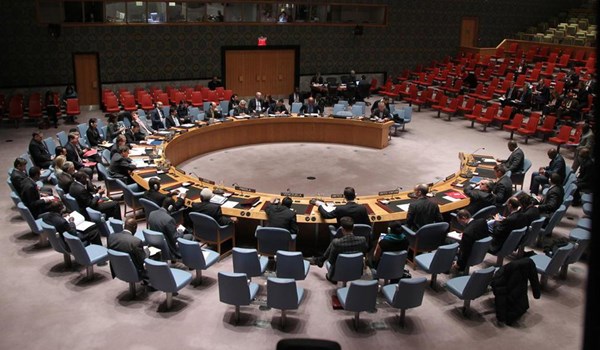
RNA - As previously, the resolution in question is a long-sought effort to impose sanctions on Syria for alleged chemical weapons use in the war. The US has imposed unilateral sanctions instead, likely a recognition the UN vote isn’t happening.
This is not surprising. The international community is not on the same page with Obama on the resolution, a big reason why US allies Britain and France don’t want to push it through in Obama’s last days either, fearing it would start relations with the new administration off on a bad footing.
The bigger reason though is the upcoming Astana peace talks. Russia, Tehran and Turkey have set up the Astana talks as the first real shot at ending the war, and heavily sanctioning Syria just ahead of the talks would be very bad timing.
Nor is that all. It is now a long-established fact that the terrorist groups of ISIL, Al-Qaeda and their affiliates possess chemical weapons, and they have used them to extend their reign of terror across Syria and Iraq. They are still using chemical agents - mustard and chlorine gas - in attacks on advancing national forces and civilians in Iraq and in northern Syria.
According to news media reports and the US intelligence community, they fire mortar rounds at allied positions that contain mustard gas because the wounds to injured fighters are different from those in a conventional attack. Despite that, the latest US-drafted resolution only criticizes ISIL for its more recent chemical weapons use!
It’s an escalation of the more than five years of conflict that could serve as an excuse for the War Party in Washington to intervene more forcefully in the fight against Damascus by creating no-fly zone over Syria.
This is particularly important. Because until yesterday President Obama was loath to commit American ground troops to fight ISIL, let alone establish no-fly zone. Now the suspicious introduction of UN resolution may have only reinforced that reluctance inside the White House.
This is while anti-Syria resolutions, direct military action and/or establishing no-fly zones are not a responsible way to fight the foreign-backed terrorist group. It takes more than boots, drones and silly resolutions to roll back ISIL. It is one thing to acknowledge how the US and its allies have helped the terrorist group grow. It is quite another to figure out how to kill their own creature.
As long as Washington and its allies are not ready to openly oppose ISIL, and/or demonstrate a clear and consistent moral basis for their acts at the UN, they cannot engage the true enemies of ISIL to work with them.
Instead of disintegrating Iraq and Syria, the United States and its allies must provide anti-ISIL forces with as much diplomatic support as possible at the UN. Allowing the two Arab nations to fall apart will only enforce the narrative that the West wants to “divide and rule” the Muslim world.
Into the argument, they must also work more closely with Iran and Russia in prioritizing the defeat of ISIL and its chemical caliphate. Collaborating with Tehran and Moscow to resolve Syria’s conflict through dialogue is the first step.
The problem is, Washington continues to suffer from trust deficit and the chronic symptoms of intervention, manipulation, aggression and double standards. If the latest anti-Syria resolution is any indication, it has no interest in international diplomacy and multi-polarity either. Its outgoing president still outlines an everything-but-the-war strategy for Syria and is bent on changing the Middle East map through proxy wars – with or without the UN on board.
847/940